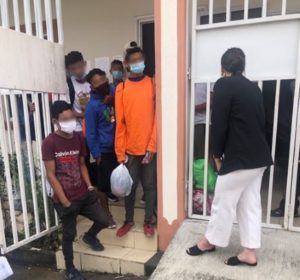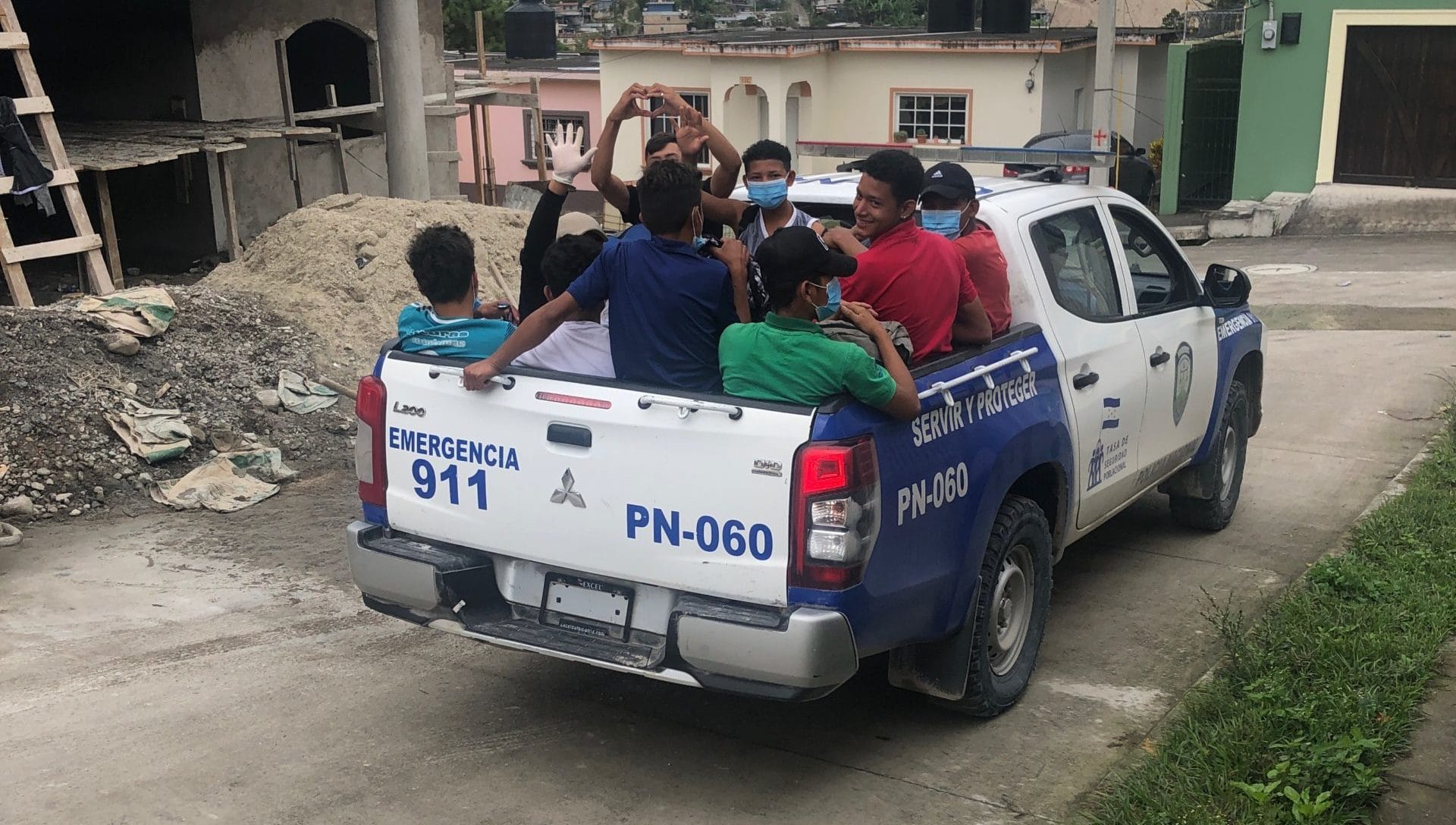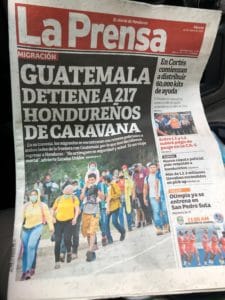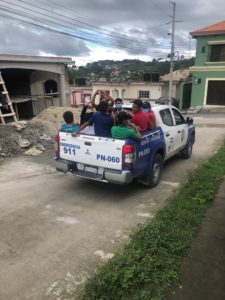As the United States is facing an influx of immigrants from Central America, we are being affected here in Honduras as well. It actually began over a year ago. In January of 2020 the first caravan made its way from San Pedro Sula, through our region, and across the border. Since then and despite the obvious deterrents, we continue to receive large amounts of immigrant children who have been returned to Honduras. The youngest of these children was a 1 year old who was returned to her grandparents as an unaccompanied minor.
The Reason They Are Leaving
Each child who passes through our doors has a story including countless teen boys whose families lost everything during the hurricanes of last year. Most of these young men came from households where single mothers struggled to provide for their children, and the boys had witnessed their younger siblings sleeping in makeshift tents alongside the road and starving. As the oldest in their household, they were faced with a choice to stay and continue watching their family suffer, or to risk their life to try and make ends meet. The boys who arrived in our center all chose to take the chance of leaving Honduras to immigrate to the United States, hoping to find work, a better life and the opportunity to support their families.
As frontline workers we have observed that following the hurricanes of last year, the people became more desperate as the social and economic situation in the country has deteriorated. We have noticed more teens and families fleeing gang violence than ever before. Young mothers with their children and teens who are just trying to find a way to help their family survive. I could sit and share countless stories of the children and teens we have served.
These are not just cases, they are faces and names of children who were placed with us in a moment of crisis and the despair in their eyes is not something I can forget.
How does Legacy of Hope fit in to this?
The need is so great and we are doing everything we can to serve these children and their families through our crisis care center, but our staff is tired and our resources are being stretched. The pandemic has compounded an already difficult situation and a year ago we had to open up a fourth building specifically for these immigration cases.
At the beginning of
They were teens who should be worried about homework or their next soccer match. But now, their whole life was packed in a backpack with phone numbers on pieces of scrap paper, money hand sewn into the hems and cuffs of their clothing. These are the things you won’t see or hear about in the news, because no one is talking about this part of the immigration crisis. They aren’t just immigrants, they are people. And these people are children, bearing the burden of their desperate families.
The Journey Itself
Most of those who see the immigration crisis think these children and families just decide to leave for an easy and free ride to the states. This is not the case, and from our experience, most of them don’t want to leave the only country they have ever known. Schools here remain closed, classes are offered by radio or the government television channel, but the learning gaps are only widening. The only lessons being learned are hard and sometimes tragic life lessons.
Recently, I became aware of an alarming trend and a terrible consequence of these constant caravans. Cartels are lining parts of Mexico, taking people from the caravan and torturing them. Then they send videos of this horrible act to their families. Demanding that if the family doesn’t send money they will kill their loved one. Tears stream down my face as I write this paragraph. These children know about these dangerous possibilities before they leave Honduras, but they are so desperate. The reality is that these young people know what I am only beginning to understand – “I could die if I stay and maybe if I go.” I can’t even imagine the turmoil these people must be in order to leave Honduras, knowing the risks and watching them play out on social and news outlets.
This is a just a glimpse of things our team is witnessing first hand as we serve our community here in Honduras. This is a beautiful country full of people who so desperately cling to the hope of something better. Most of these immigrant children don’t want to leave, but they are left with no other choice. No house, poor education, no work opportunities, parents with no job, no food and nowhere to turn for help. So they plan to leave on the next caravan, some alone, some with their families. All of them planning to find work and send money home, most of them hoping to one day return to their families. The risks are growing and unfortunately most of them won’t have the opportunity to return.
We can only continue to serve in the best way we know how, caring for these immigrants as Jesus would and intentionally choosing to pray and believe with them that there is hope for tomorrow.





